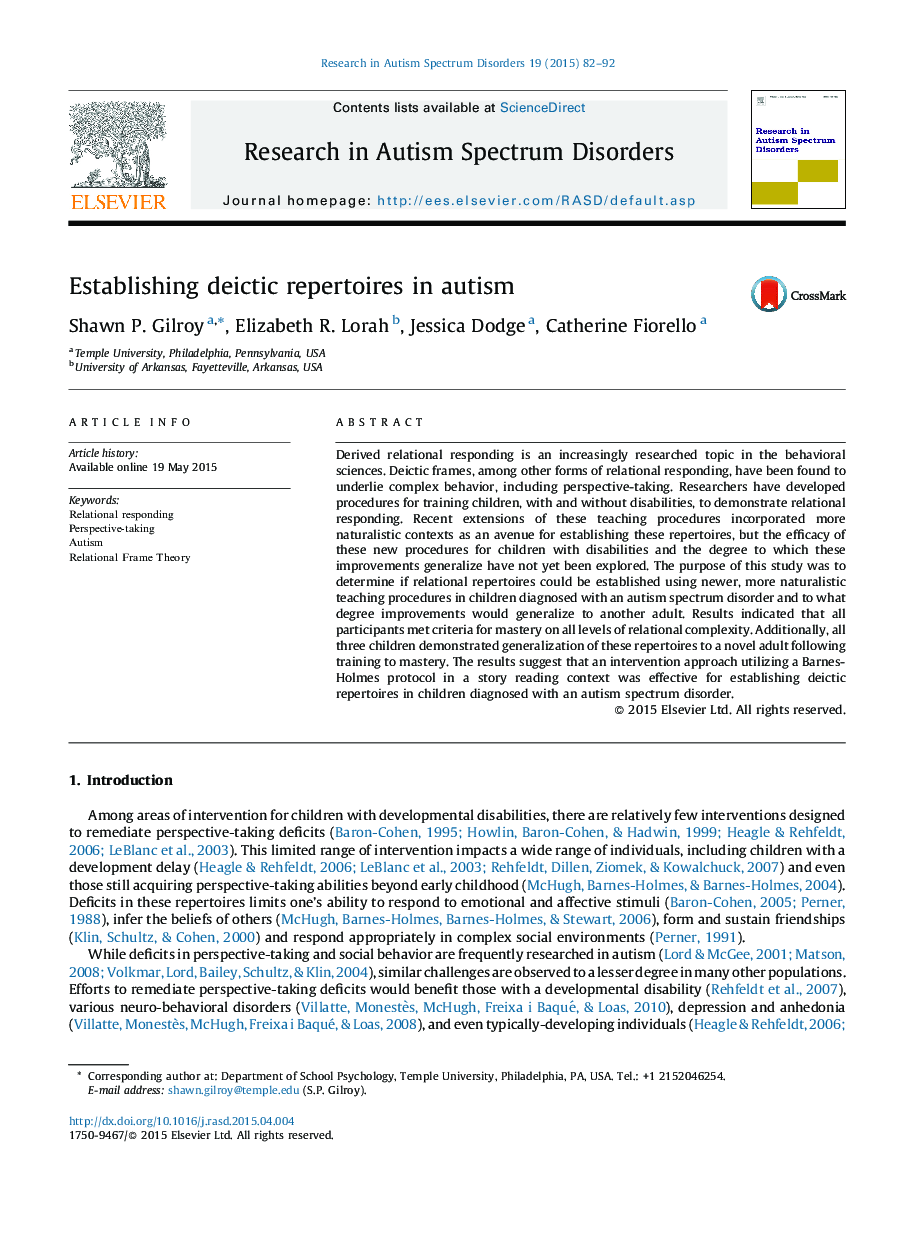| Article ID | Journal | Published Year | Pages | File Type |
|---|---|---|---|---|
| 370019 | Research in Autism Spectrum Disorders | 2015 | 11 Pages |
•Research on relational responding continues to grow in popularity.•Procedures for establishing relation repertoires in autism are limited.•Protocols for teaching relational responding in perspective taking exist, but data on generalization is very limited.•This study evaluated the use of a teaching protocol for establishing deictic relational repertoires in autism.•The participants were three school aged children with autism.•Results indicated that the teaching protocol was effective and that repertories were generalized to a novel adult.
Derived relational responding is an increasingly researched topic in the behavioral sciences. Deictic frames, among other forms of relational responding, have been found to underlie complex behavior, including perspective-taking. Researchers have developed procedures for training children, with and without disabilities, to demonstrate relational responding. Recent extensions of these teaching procedures incorporated more naturalistic contexts as an avenue for establishing these repertoires, but the efficacy of these new procedures for children with disabilities and the degree to which these improvements generalize have not yet been explored. The purpose of this study was to determine if relational repertoires could be established using newer, more naturalistic teaching procedures in children diagnosed with an autism spectrum disorder and to what degree improvements would generalize to another adult. Results indicated that all participants met criteria for mastery on all levels of relational complexity. Additionally, all three children demonstrated generalization of these repertoires to a novel adult following training to mastery. The results suggest that an intervention approach utilizing a Barnes-Holmes protocol in a story reading context was effective for establishing deictic repertoires in children diagnosed with an autism spectrum disorder.
